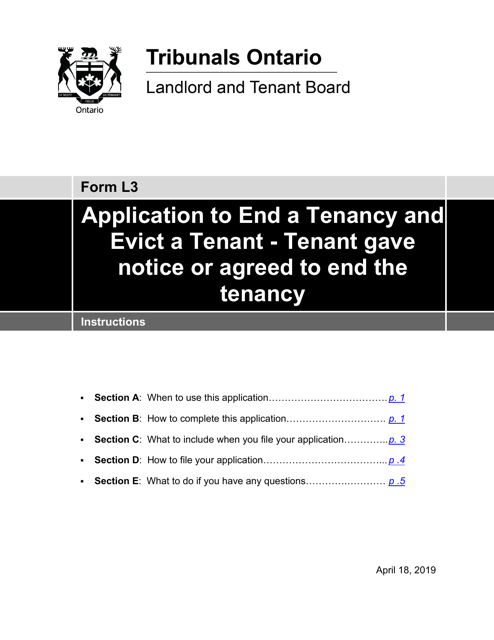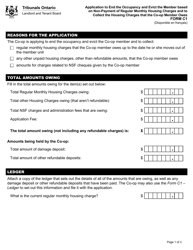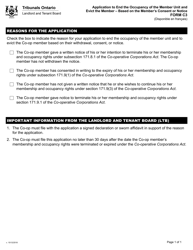Instructions for Form L3 Application to End a Tenancy and Evict a Tenant - Tenant Gave Notice or Agreed to End the Tenancy - Ontario, Canada
The "Instructions for Form L3 Application to End a Tenancy and Evict a Tenant - Tenant Gave Notice or Agreed to End the Tenancy" in Ontario, Canada provides guidance on how to legally terminate a tenancy and evict a tenant when the tenant has given notice or both parties have agreed to end the tenancy. It outlines the steps and requirements for landlords to file the necessary forms and follow the proper procedures.
In Ontario, Canada, the landlord typically files the Instructions for Form L3 Application to End a Tenancy and Evict a Tenant - Tenant Gave Notice or Agreed to End the Tenancy.
FAQ
Q: What is Form L3?
A: Form L3 is an application form to end a tenancy and evict a tenant in Ontario, Canada.
Q: Who can use Form L3?
A: Landlords in Ontario can use Form L3 when a tenant has given notice to end the tenancy or agreed to end the tenancy.
Q: What is the purpose of Form L3?
A: The purpose of Form L3 is to initiate the process to end a tenancy and obtain an eviction order from the Landlord and Tenant Board in Ontario, Canada.
Q: What information is required on Form L3?
A: Form L3 requires detailed information about the tenant, the rental unit, and the reasons for ending the tenancy and seeking eviction.
Q: What happens after submitting Form L3?
A: After submitting Form L3, the Landlord and Tenant Board will process the application and schedule a hearing to determine if an eviction order should be granted.
Q: Can a tenant dispute the eviction application on Form L3?
A: Yes, a tenant has the right to dispute the eviction application by filing a response to the application with the Landlord and Tenant Board.
Q: How long does the eviction process take?
A: The length of the eviction process can vary depending on the circumstances and the workload of the Landlord and Tenant Board. It is recommended to consult with a legal professional for specific timelines.
Q: What happens if the eviction order is granted?
A: If the eviction order is granted, the tenant will be required to vacate the rental unit within a specified time period. If they fail to do so, further enforcement actions may be necessary.



















